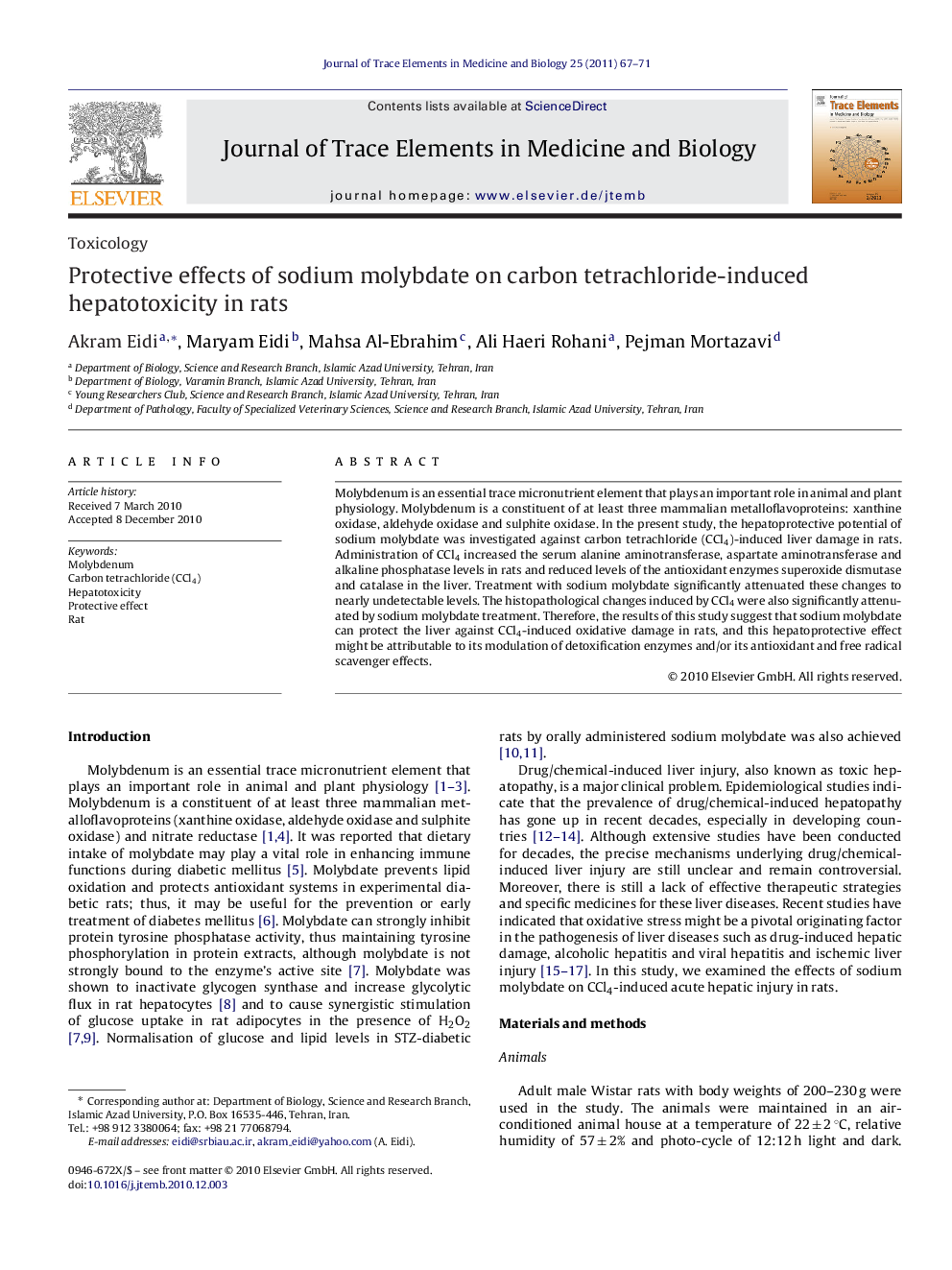| Article ID | Journal | Published Year | Pages | File Type |
|---|---|---|---|---|
| 1227118 | Journal of Trace Elements in Medicine and Biology | 2011 | 5 Pages |
Abstract
Molybdenum is an essential trace micronutrient element that plays an important role in animal and plant physiology. Molybdenum is a constituent of at least three mammalian metalloflavoproteins: xanthine oxidase, aldehyde oxidase and sulphite oxidase. In the present study, the hepatoprotective potential of sodium molybdate was investigated against carbon tetrachloride (CCl4)-induced liver damage in rats. Administration of CCl4 increased the serum alanine aminotransferase, aspartate aminotransferase and alkaline phosphatase levels in rats and reduced levels of the antioxidant enzymes superoxide dismutase and catalase in the liver. Treatment with sodium molybdate significantly attenuated these changes to nearly undetectable levels. The histopathological changes induced by CCl4 were also significantly attenuated by sodium molybdate treatment. Therefore, the results of this study suggest that sodium molybdate can protect the liver against CCl4-induced oxidative damage in rats, and this hepatoprotective effect might be attributable to its modulation of detoxification enzymes and/or its antioxidant and free radical scavenger effects.
Related Topics
Physical Sciences and Engineering
Chemistry
Analytical Chemistry
Authors
Akram Eidi, Maryam Eidi, Mahsa Al-Ebrahim, Ali Haeri Rohani, Pejman Mortazavi,
